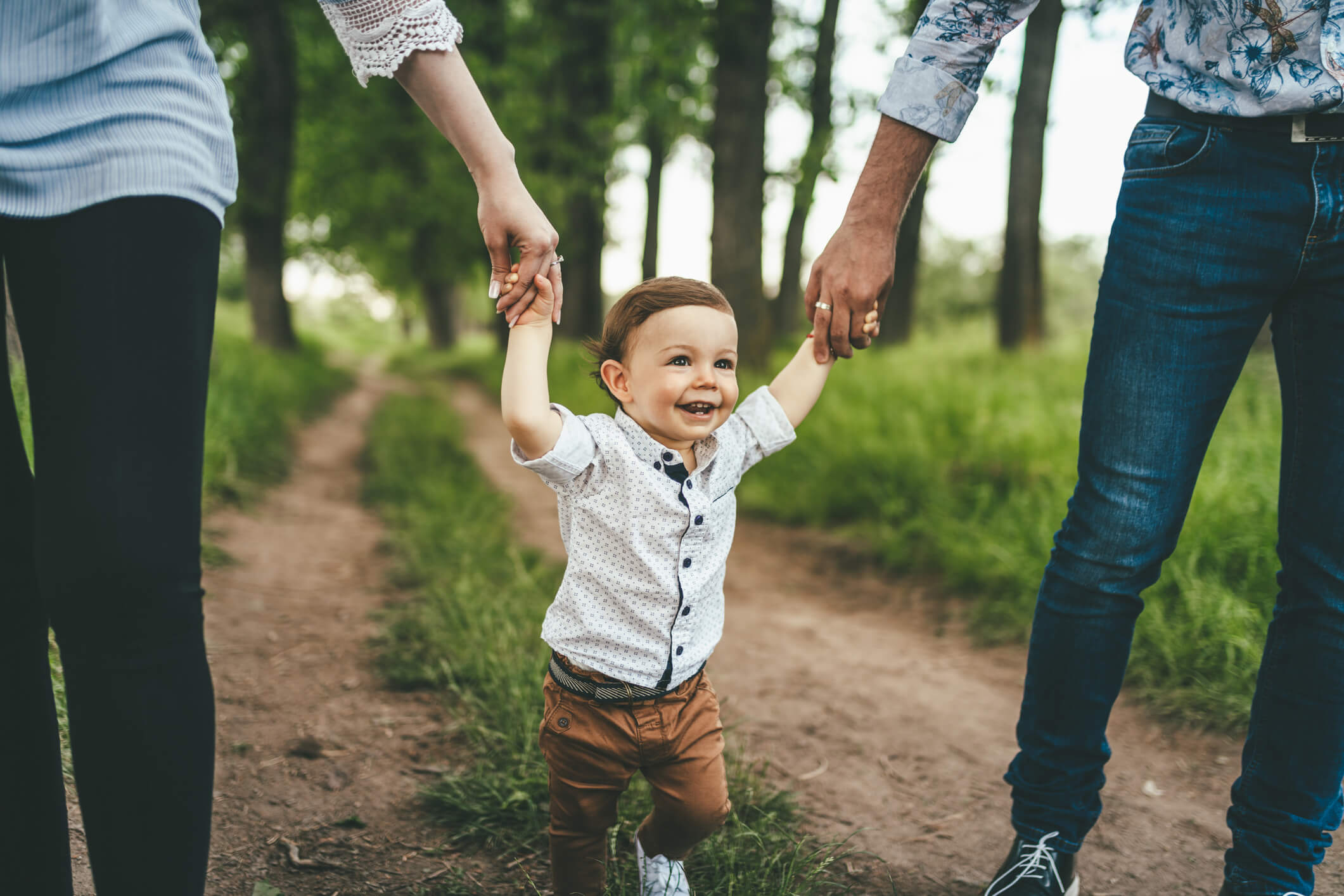When your baby is born an adventure begins. It goes from the first gestures and displays of affection between your little one and you to their first words and the long-awaited day when they walk and play on their own. All of these achievements are developmental milestones that show how your 12-month-old baby is growing and progressing.
Between 8 and 12 months, you will notice that your baby moves more and more, something that will be a challenge for both of you. The ability to move around on their own will give your baby a whole new sense of control and independence.
Now, developmental milestones not only focus on physical abilities, but also refer to the evolution of children’s language, social, emotional, and cognitive skills.
Next, we will talk about some of the developmental milestones that you will observe in your 12-month-old baby. Remember that each child develops at their own pace, so don’t worry about the exact age at which your little one reaches each of the indicators that we will mention.
Milestones in a 12-month-old baby
1. Physical development
In terms of physical development, your little one will begin to move small objects, like cereal, from one container to another using their index finger and thumb. Also, they may start crawling up the stairs, stop a moving ball using their hands and body, go from standing to squatting, and keep their balance while playing standing up.
Download the Kinedu app for FREE and start tracking your baby’s milestones and progress!
Each newly acquired skill requires balance, coordination, motor planning, and attention. Although some of the physical skills, such as walking or running, may seem intuitive, take into account that they require a very complex set of physical skills.
To help your 12-month-old baby reach the developmental milestones at this stage, play with building blocks or other objects that encourage your child to use their hands. Another alternative is to hide small items and ask them to find them. Pushing objects like a wagon or a stroller can also be of great help.
Create safe spaces for exploration. Make sure all cleaning and gardening products, medicines, among other things, are locked away in a safe baby-proof space.
2. Linguistic development
In this area, you may notice that your baby already understands phrases of three or more words (for example, “Give me the spoon”), gives you an object when you ask for it, tries to imitate the words you say, and repeats a syllable someone else said.
Children learn to speak through imitation. You don’t need to teach your child every word, just speak normally to support their learning. If you name the people and things that surround your child, little by little, they will associate those words with the corresponding person or object.
Another activity that encourages language development between 12 and 24 months is exposing your child to nursery rhymes. They will help them expand their vocabulary and begin to understand some phrases.
Most children begin to pronounce meaningful words between 11 and 16 months of age. If between 12 and 18 months your little one is still not talking but uses other forms of communication, such as using gestures and pointing at things, don’t worry! At this stage, that is as valid as language.
3. Social and emotional development
Usually, when we talk about developmental milestones, the first thing that comes to mind are the physical abilities. However, social skills are equally important, since they are related to the ability of children to adapt at school, establish lasting and loving personal relationships, and have emotional well-being.
At 12 months, some of the indicators you might notice in your child is that they extend their arms or legs to help you when you are dressing them, they act shy in the presence of strangers, and they begin to have favorite things and people.
To encourage your 12-month-old baby’s development, it is important to give them time to get used to new people and that they have a toy or doll that makes them feel comfortable when they are under someone else’s care, like a grandparent or a nanny. Also, try to encourage their positive behaviors and praise and hug them when they behave well.
4. Cognitive development
This developmental area includes a set of mental processes such as abstract thinking, memory, problem-solving, and attention. In short, skills that allow your little one to have a greater understanding of the world around them.
In their first year, your child may understand that people and things still exist, even when they cannot see or touch them. This means that your baby understands object permanence. To boost this skill, an excellent idea is to play hide and seek with your child.
Another of the most representative cognitive milestones of a 12-month-old baby is that they may begin to imitate simple actions and understand how to use some objects properly after seeing an adult use them. For example, they will hold a phone to their ear and then talk.
These are some of the developmental milestones that your little one will reach after they turn 12 months old. Although each child develops at their own pace, don’t forget to consult with your pediatrician about all the doubts you might have about your little one’s development.
Would you like to know more about each of your child’s developmental stages and how to boost their development? Download Kinedu for free HERE.








